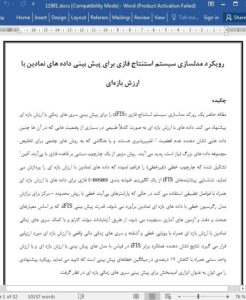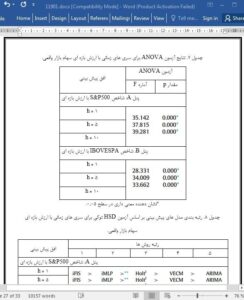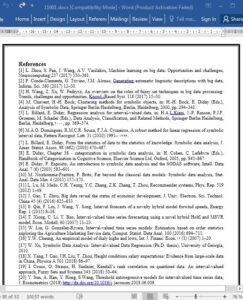Abstract
This paper suggests a fuzzy inference system (iFIS) modeling approach for interval-valued time series forecasting. Interval-valued data arise quite naturally in many situations in which such data represent uncertainty/variability or when comprehensive ways to summarize large data sets are required. The method comprises a fuzzy rule-based framework with affine consequents which provides a (non)linear framework that processes interval-valued symbolic data. The iFIS antecedents identification uses a fuzzy c-means clustering algorithm for interval-valued data with adaptive distances, whereas parameters of the linear consequents are estimated with a center-range methodology to fit a linear regression model to symbolic interval data. iFIS forecasting power, measured by accuracy metrics and statistical tests, was evaluated through Monte Carlo experiments using both synthetic interval-valued time series with linear and chaotic dynamics, and real financial interval-valued time series. The results indicate a superior performance of iFIS compared to traditional alternative single-valued and interval-valued forecasting models by reducing 19% on average the predicting errors, indicating that the suggested approach can be considered as a promising tool for interval time series forecasting.
4. Conclusion
The significant development of data collection technologies has contributed to the production of huge volumes of data. Therefore, approaches able to extract valuable information from large databases are demanding. When data are represented by symbolic interval-valued variables, it makes it possible to summarize the data and provide a way to account for the variability and/or uncertainty inherent to the data. In this domain, interval time series (ITS) forecasting plays an increasingly important role in areas such as financial markets, meteorology, and traffic flow management since it is seen as an additional tool for organizations and practitioners in policy and decision-making processes.










